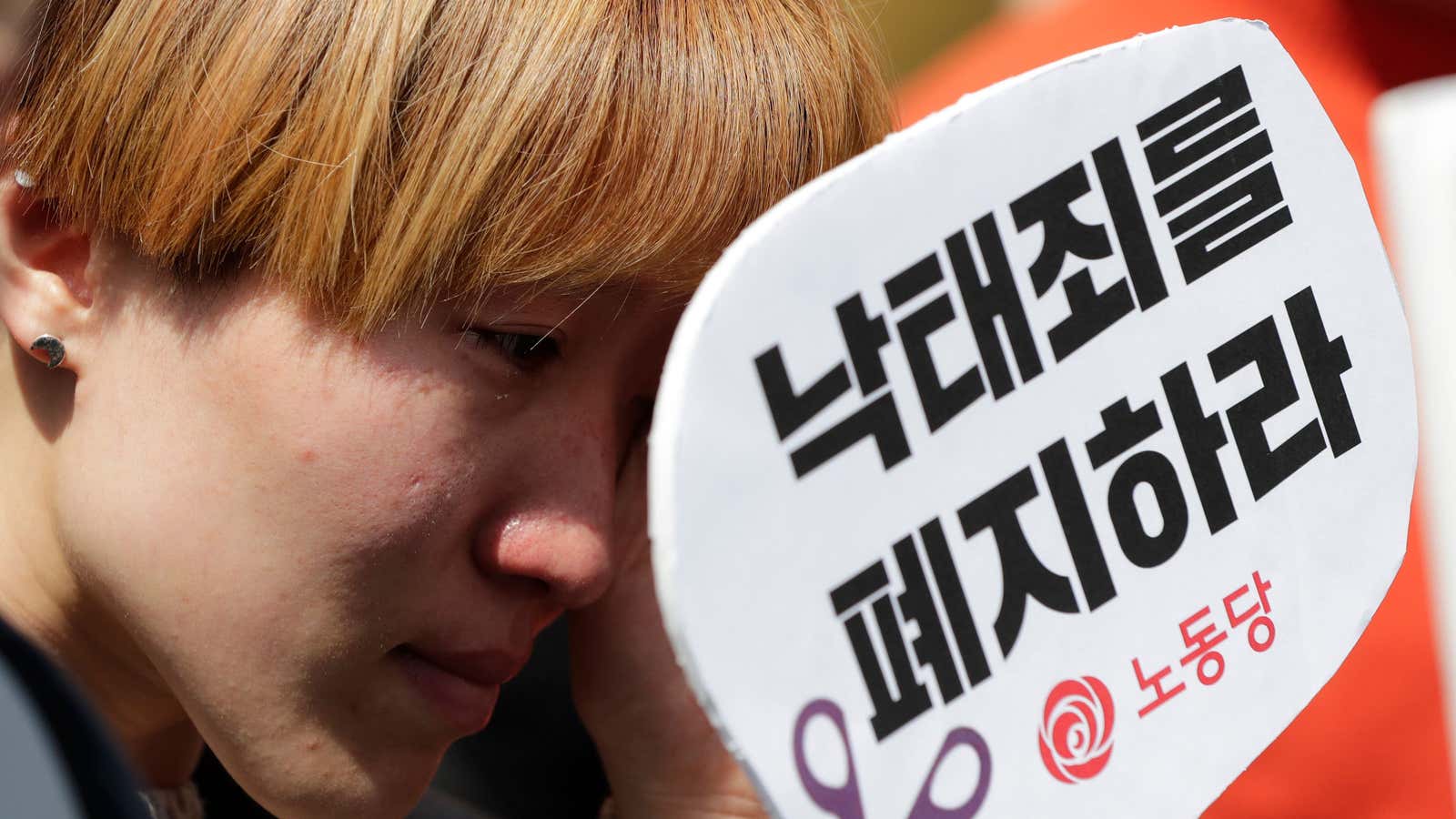A court in South Korea ruled today (April 11) that the current ban on abortion is unconstitutional and infringes on women’s freedom to choose. It required lawmakers to amend abortion laws by the end of next year.
The push to challenge the nearly 70-year-old law gathered pace in recent years after more than 230,000 people signed a petition in 2017 to the presidential Blue House calling for abortion to be legalized. Today’s ruling comes after a challenge last year from a doctor who had been prosecuted for performing almost 70 abortions took the issue to the courts.
The last time the Constitutional Court reviewed the ban on abortion was in 2012 when it voted to uphold it.
Abortions in Korea are only permitted in cases where the mother’s life is at risk, or if she was raped, and often required permission from a woman’s spouse. Otherwise, doctors who perform the procedure can be sentenced for up to two years in prison while women face up to one year in prison. Though abortions are rarely prosecuted and are widely performed in Korea, health practitioners and activists say that the illegality of the procedure and stigmatization of both abortion and having children out of wedlock forces many women to go through unsafe procedures with little knowledge of the risks involved. Around 50,000 abortions were performed in 2017, according to the government-linked Korea Institute for Health and Social Affairs, the most recent year for which data are available—though most believe the number is much higher in reality.
Pro-life and pro-choice demonstrators—including doctors—gathered outside the Seoul courthouse today ahead of the ruling.
While a recent government-sponsored survey found that a majority of Korean women supported overturning the abortion ban, the issue remains deeply divisive in a country where conservative attitudes and the Church continue to exert huge influence.
The abortion ban was implemented in 1953 by Korea as a means to ensure that the population would grow in order to sustain economic growth and a powerful military after Korean War hostilities ended. The law was relaxed in 1973 (pdf) to allow broad exceptions, while abortions outside those exceptions were allowed to continue under the radar as the government sought to limit the country’s population growth by promoting smaller families and the use of birth control (paywall).
When those efforts became too successful later, however, with Korea’s birth rate plummeting to record lows, the conservative governent of president Lee Myung-bak in 2009 called for abortion to be more strictly enforced. The pro-life movement gained further momentum when a group of anti-abortion doctors led a movement to refuse illegal procedures and report clinics that performed them.
Today’s ruling is a major victory not only for Korea’s pro-choice camp, but also for supporters of greater gender equality in a country which has seen a groundswell of female activism on a range of issues from hidden cameras to #MeToo. Womenlink, a non-profit organization, said in a statement (link in Korean) welcoming the court’s decision that the country should “strive to be a society where the basic rights of citizens are guaranteed.”
